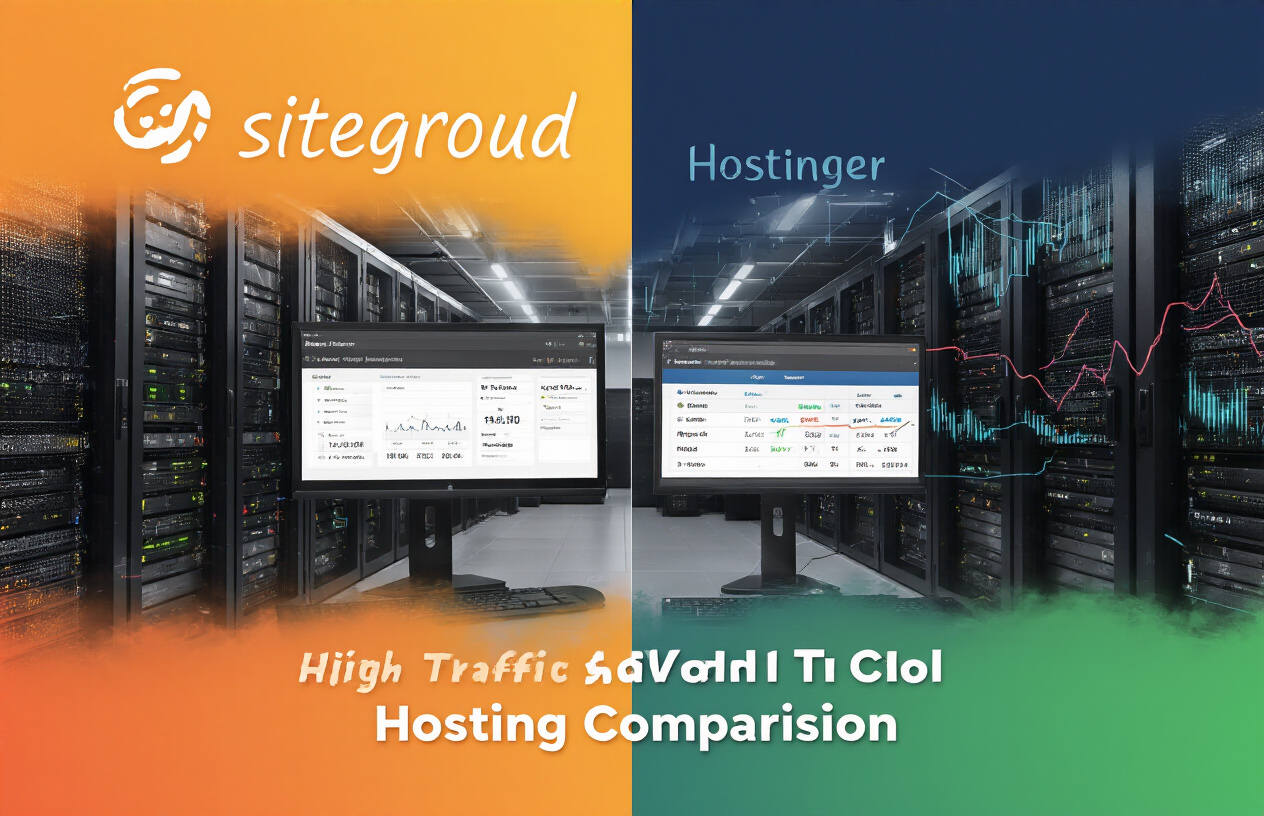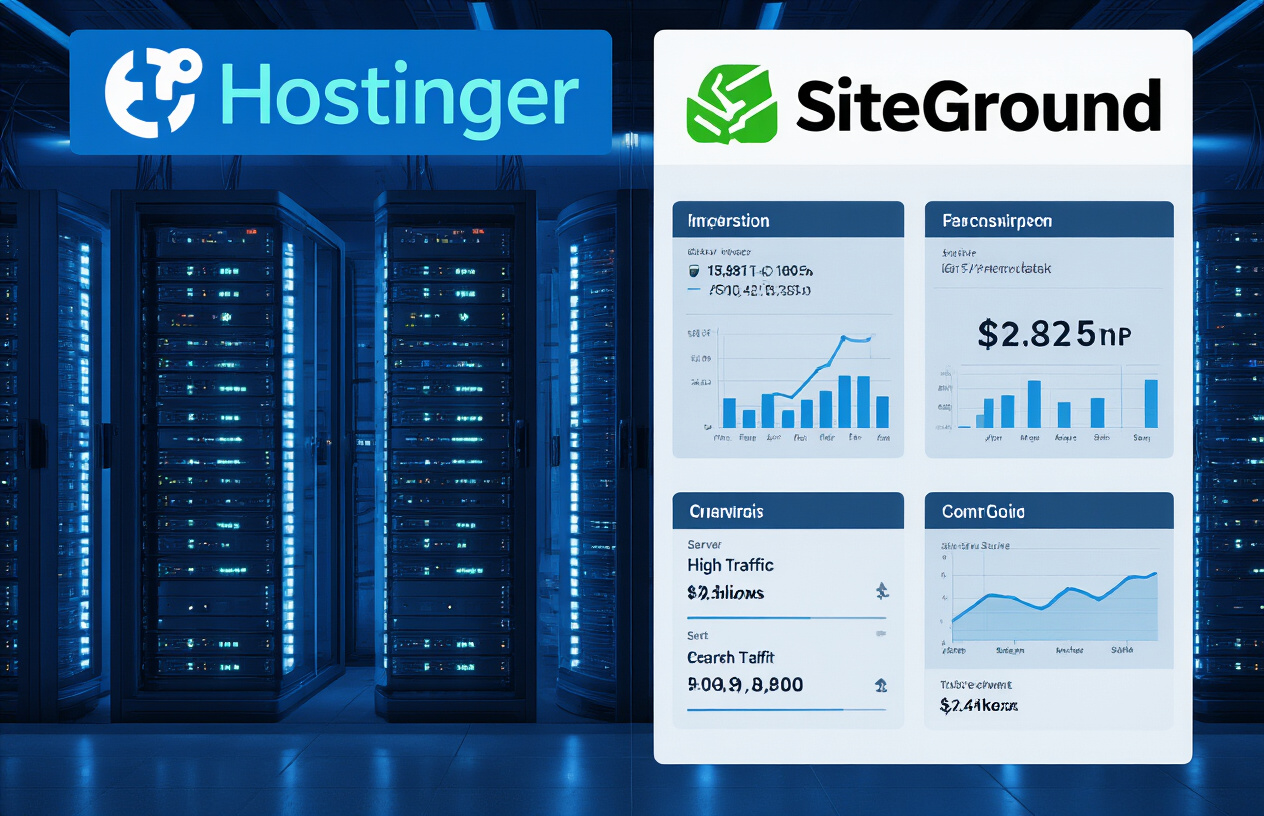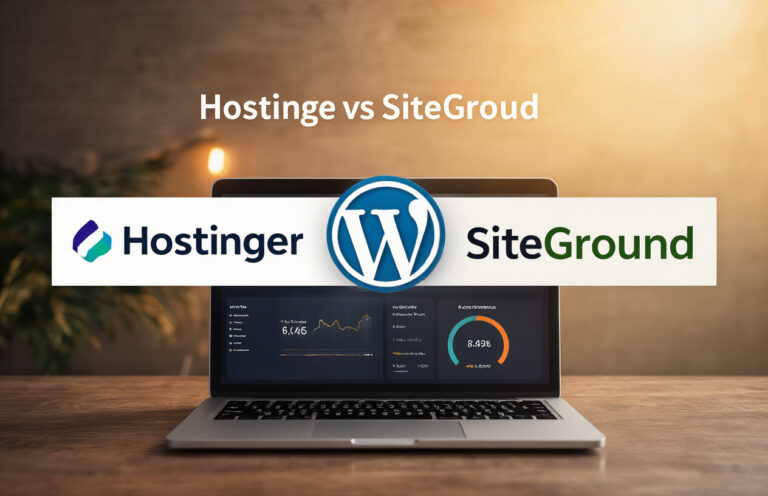SiteGround vs Hostinger: Which Hosting Platform is Best for High Traffic Sites?
Looking for the right hosting provider for your high-traffic website? SiteGround and Hostinger are popular choices, but they have distinct strengths when handling substantial visitor loads. This guide helps website owners and digital entrepreneurs determine which platform better serves busy sites with significant traffic demands.
We’ll compare these hosting powerhouses on critical factors that impact high-traffic performance. You’ll discover how they stack up on speed and performance capabilities, with SiteGround’s Google Cloud infrastructure competing against Hostinger’s LiteSpeed technology. We’ll also analyze their pricing structures to determine which provider delivers better value for resource-intensive sites.
Both platforms offer robust features, but your high-traffic site requires specific capabilities. Let’s explore which hosting solution can best support your growing online presence.
Understanding Hostinger and SiteGround
Understanding Hostinger and SiteGround
Company overview and reputation
Both Hostinger and SiteGround are trusted by over 3 million website owners with a decade of experience in the hosting industry. Hostinger is known for affordability and user-friendly features, while SiteGround stands out for exceptional customer support and advanced security features.
Target audience and specializations
You’ll find Hostinger caters to beginners and budget-conscious users, providing excellent value for personal and business websites. SiteGround, on the other hand, targets professionals and businesses seeking premium hosting services with a focus on quality. Hostinger specializes in affordable hosting with excellent uptime, while SiteGround offers various options including web, cloud, reseller, and enterprise hosting for higher traffic sites.
Basic features comparison
When comparing basic features, you’ll notice Hostinger’s plans start around $2 per month with 100GB storage, while SiteGround begins at $4 monthly with 10GB storage. Both offer 99.9% uptime guarantees, free domains for the first year, CDN, SSL certificates, 24/7 support, and 30-day money-back guarantees. Hostinger provides an AI Website Builder that SiteGround doesn’t, but SiteGround offers unlimited email accounts compared to Hostinger’s 100-account limit.
User Experience and Control Panels
User Experience and Control Panels
Hostinger’s hPanel functionality
You’ll find Hostinger’s hPanel extremely intuitive with essential tools accessible via the left sidebar. It offers one-click WordPress installation, automatic SSL setup, and direct access to file manager. The clean interface makes domain switching simple and feels more personal compared to other panels.
SiteGround’s Site Tools Interface
When using SiteGround, you’ll navigate a beginner-friendly control panel with sidebar navigation similar to hPanel. The interface makes managing domains, databases, and files intuitive, though you might notice the dashboard sometimes feels cluttered with various add-ons.
WordPress Installation and Management
You can enjoy one-click WordPress installation with both hosts. Hostinger provides inexpensive WordPress hosting with automatic updates and specialized support. SiteGround, officially recommended by WordPress.org, offers specialized hosting with tools for site optimization and security.
Website Builder Options
You have access to Hostinger’s custom Zyro builder ($1.99/month personal, $3.99/month business) with drag-and-drop functionality and AI-powered SEO tools. With SiteGround, you’ll receive a free Weebly-powered website builder for creating professional sites from templates or scratch, giving SiteGround an advantage in this area.
Best Use Cases for Each Host
Best Use Cases for Each Host
Ideal scenarios for choosing Hostinger
You’ll find Hostinger ideal if you’re budget-conscious or just starting your first website. It’s perfect for simple hosting needs, VPS requirements, or when you need email servers. If you plan to host multiple websites, their Business Web Hosting plan offers excellent value with reliable performance and user-friendly interfaces.
When SiteGround is the better option
You should choose SiteGround when speed is your priority, as it offers faster raw loading times in some tests. It’s better suited for enterprise or reseller hosting needs. If security tops your concerns, SiteGround’s advanced features like anti-AI bot protection and geographically distributed backups make it worth the premium price. You’ll also appreciate their immediate assistance across multiple support channels.
High traffic site considerations
You can rely on Hostinger’s LiteSpeed web servers for resource-intensive projects, optimizing usage for high-traffic websites. Meanwhile, SiteGround offers Enterprise Hosting with custom plans specifically designed for higher traffic sites. You’ll benefit from their Google Cloud platform infrastructure and SSD technology that enhances scalability. While Hostinger may edge ahead in speed, you’ll find SiteGround’s comprehensive infrastructure makes it equally compelling for high-traffic needs.
Final Takeaway: Choosing Between Hostinger and SiteGround
When selecting between Hostinger and SiteGround for high-traffic websites, your decision should be based on your specific priorities. Hostinger offers exceptional value with more affordable plans, LiteSpeed servers, and a user-friendly hPanel that makes website management straightforward. It’s ideal for budget-conscious users who still need reliable performance and good uptime.
SiteGround edges ahead in several technical aspects that matter for high-traffic sites, including slightly faster loading speeds in certain tests, more advanced security features like anti-AI bot protection, and superior customer support with phone options available. While it comes at a higher price point, SiteGround’s investment may be justified for business websites where performance and security cannot be compromised. Consider your budget, technical requirements, and growth projections when making your final choice between these two excellent hosting providers.








